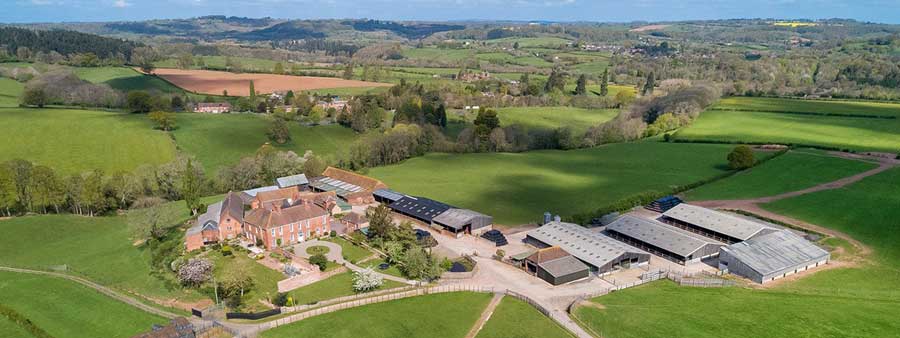 |
The bishop leased the manor in 1318 to Master Peter Fillol, rector of the church of Martley, and in 1324–5 to John Collan for life. It was again leased in 1336 for the lives of William de Massington and Agnes his wife. In 1460–1 the bishop leased the site of the manor to Thomas Romney of Lulsley, Isabel his wife and John their son for a term of seventy years. The manor was valued at £8 in 1535. It was confiscated by Edward VI on Bishop Heath's deprivation in 1552 and was granted in the following year to Lord Robert Dudley and his heirs and William Glasyer. Lord Robert Dudley was attainted and sentenced to death in the same year for taking the part of Lady Jane Grey, and though he was pardoned in October 1554 this manor seems to have remained in the Crown until 1560. It was among the manors taken from the bishopric by Queen Elizabeth under the Act of 1558–9, which enabled her to take into her hands certain of the temporalities of any bishopric which fell vacant, recompensing the value with parsonages impropriate.
Lord Robert Dudley was restored in blood in March 1557–8 and created Earl of Leicester in 1564. The manor of Knightwick must have been restored to him, and his and William Glasyer's interest passed to Sir Richard Sackville, whose son Thomas Sackville Lord Buckhurst sold the manor in 1568 to Lancelot Romney. Lancelot died seised of it in 1595, when it passed to his son John, to whom livery was made in 1605. It was probably this John who was outlawed for felony and murder in January 1628. By an inquisition taken in 1630 it was found that John on the day of his outlawry was seised for life of a capital messuage and land in Knightwick. This estate was granted in September 1630 to Thomas Cooke during the lifetime of John Romney. John was evidently restored, for he died seised of the manor about 1640, when it passed to his son Lancelot. Lancelot died in 1643, leaving a son John, aged eleven, and three years after the estate was sequestered for Lancelot's delinquency in arms. In 1648 John Evett, grandfather and guardian of John Romney, begged to compound for the estate, but before the sum could be raised Evett was imprisoned for debt in Worcester Castle. The guardianship of the child passed to Henry son of John Evett, and he in March 1651 offered to pay the debt. When Charles came to Worcester in 1651 John Romney joined his standard, under compulsion, as he stated, by the Scotch soldiers quartered at his uncle's house. Though he did not take part in the battle his estate was forfeited, and when in 1659 his property was ordered to be sequestered for his complicity in Sir George Booth's rising it was found that it was already sequestered for his engagement with the Scots.
In 1666 John Romney and Elizabeth his wife, William Robbins and John his wife, Henry Evett and Francis Powle sold the manor of Knightwick to Thomas Foley. His grandson Thomas Foley was created Lord Foley of Kidderminster in 1712, and the manor descended with the title until 1830 or later. It must soon after have been purchased by John Williams of Pitmaston, from whom it passed under a settlement made in 1838 to his son Francis Edward Williams. He was lord of the manor until his death in 1885, when the estate passed to his son John Francis, who assumed the additional surname Greswolde. He died without issue in 1892, having devised the manor to his nephew Francis Wigley Greswolde Greswolde-Williams of Bredenbury Court, Herefordshire.
1688 · Glorious Revolution
The Glorious Revolution brought the downfall of Catholic King James II and the reign of his Protestant daughter Mary and her Dutch husband, William III of Orange.
1720 · South Sea Bubble
The South Sea Bubble Bill was passed by the House of Lords in 1720. This allowed the South Sea company to monopolize trade with South America. The company underwrote the English National Debt which promised 5% interest from the government. As shares rose exponentially, many companies were created and many fortunes were made. The stocks crashed and many people lost their money which caused them to become destitute overnight and suicide was common. Robert Walpole took charge of the South Sea Bubble Financial Crisis by dividing the national debt between the Bank of England, the Treasury, and the Sinking Fund.
1752 · Gregorian Calendar is Adopted
Gregorian calendar was adopted in England in 1752. That year, Wednesday, September 2, 1752, was followed by Thursday, September 14th, 1752, which caused the country to skip ahead eleven days.
©peh
